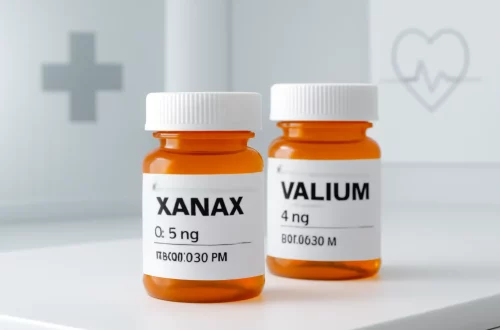
Is Propel Water Bad for You? Exploring the Health Impacts
Propel Water has emerged as a popular choice for individuals looking to stay hydrated while enjoying a hint of flavor. Marketed as a zero-calorie, electrolyte-enhanced beverage, it appeals to fitness enthusiasts and those seeking alternatives to sugary drinks. With a growing health-conscious consumer base, Propel Water stands out due to its unique selling points, including its refreshing taste and added vitamins. However, as with any product in the health and wellness sector, it raises questions about its overall impact on health.
The beverage industry has seen a significant shift towards healthier options, and Propel Water fits neatly into this trend. But what does it mean for consumers who are increasingly aware of the importance of ingredients and health implications? The debate surrounding flavored waters often centers on their ingredient lists, artificial additives, and potential long-term effects. While many appreciate the convenience and refreshing taste of Propel Water, others voice concerns over its components and what they might mean for overall health.
As we delve deeper into the health impacts of Propel Water, it is essential to examine both its benefits and potential drawbacks. Understanding the balance between hydration, nutrition, and the ingredients we consume can empower individuals to make informed choices about their dietary habits.
Understanding the Ingredients
One of the first steps in assessing the health implications of Propel Water is to take a close look at its ingredients. Propel Water typically contains water, electrolytes, vitamins, and artificial flavorings. The main electrolytes found in Propel are sodium and potassium, which are essential for maintaining hydration and supporting muscle function. These minerals are especially important for individuals engaging in physical activity, as they help replenish what is lost through sweat.
In addition to electrolytes, Propel Water is often fortified with vitamins such as Vitamin B and Vitamin C. Vitamin B plays a crucial role in energy metabolism, while Vitamin C is known for its antioxidant properties and immune support. This combination of ingredients positions Propel Water as not just a beverage but as a supplementary source of hydration and nutrients, particularly for those who lead active lifestyles.
However, the presence of artificial flavorings and sweeteners can raise concerns for some consumers. Many flavored waters, including Propel, use these additives to enhance taste without adding calories. While these substances are generally recognized as safe by regulatory agencies, some studies suggest that long-term consumption of artificial additives may have unknown health effects. Consumers should be aware of their own sensitivities and preferences, as some may opt to avoid artificial ingredients altogether.
Ultimately, understanding the ingredient list of Propel Water can help consumers make informed decisions about their hydration choices. While the product offers certain benefits, it is essential to weigh these against any potential concerns regarding artificial additives.
The Benefits of Staying Hydrated
Hydration is a fundamental aspect of maintaining overall health and wellness. Drinking adequate amounts of water is crucial for various bodily functions, including regulating temperature, supporting digestion, and maintaining healthy skin. For many, the challenge lies in consuming enough water throughout the day, particularly for those who find plain water unappealing.
Propel Water can serve as a solution for individuals looking to increase their fluid intake while enjoying a burst of flavor. The appealing taste may encourage more frequent consumption, helping individuals meet their hydration goals. Additionally, the inclusion of electrolytes can be particularly beneficial for those engaging in intense physical activities. After exercise, replenishing lost fluids and electrolytes is vital for recovery and optimal performance.
Moreover, flavored waters like Propel can provide a refreshing alternative to sugary sodas and artificially sweetened beverages, which often contribute to excessive calorie intake and negative health effects. By opting for Propel Water, consumers can enjoy hydration without the added sugars or calories, making it a more health-conscious choice.
It’s important to note that while Propel Water can contribute to overall hydration, it shouldn’t be the sole source of fluid intake. A balanced approach that includes a variety of beverages, such as plain water, herbal teas, and other hydrating foods can provide comprehensive hydration benefits.
Potential Concerns and Drawbacks
Despite its appealing aspects, Propel Water is not without its criticisms. One of the primary concerns revolves around the presence of artificial sweeteners and flavors. While these ingredients allow for a calorie-free beverage, there is ongoing debate about their long-term health effects. Some studies have linked artificial sweeteners to metabolic changes, alterations in gut microbiota, and even cravings for sweet foods.
Another area of concern is the sodium content found in Propel Water. While sodium is an essential electrolyte, excessive intake can lead to hypertension and other cardiovascular issues. For individuals who already consume a high-sodium diet, drinking products like Propel Water could inadvertently contribute to higher overall sodium intake.
Furthermore, some consumers may experience gastrointestinal discomfort when consuming flavored waters due to carbonation or certain additives. Individuals with sensitive digestive systems should be mindful of how their body reacts to Propel Water and consider alternatives if discomfort arises.
Lastly, while Propel Water may offer certain benefits, it’s vital to remember that it is not a substitute for a balanced diet or a comprehensive hydration strategy. Relying solely on flavored waters without consuming sufficient plain water and nutrient-dense foods may not support optimal health.
Making Informed Choices
In the end, the decision to include Propel Water in one’s diet should be based on personal preferences, health goals, and lifestyle. It’s essential for consumers to evaluate their hydration needs and consider how products like Propel fit into their overall diet. While Propel Water can be a convenient and flavorful option for staying hydrated, it is crucial to remain aware of its ingredients and potential effects.
For those who enjoy the taste and appreciate the added vitamins and electrolytes, Propel Water can be a beneficial addition to a balanced hydration plan. However, individuals with specific dietary restrictions or health concerns should consult their healthcare providers to ensure that flavored waters align with their health objectives.
Ultimately, conscious consumption is key. By being informed about what is in our beverages and how they impact our health, we can make choices that support our wellness journey.
**Disclaimer:** This article is for informational purposes only and does not constitute medical advice. Always consult a healthcare professional for medical concerns or dietary recommendations.




